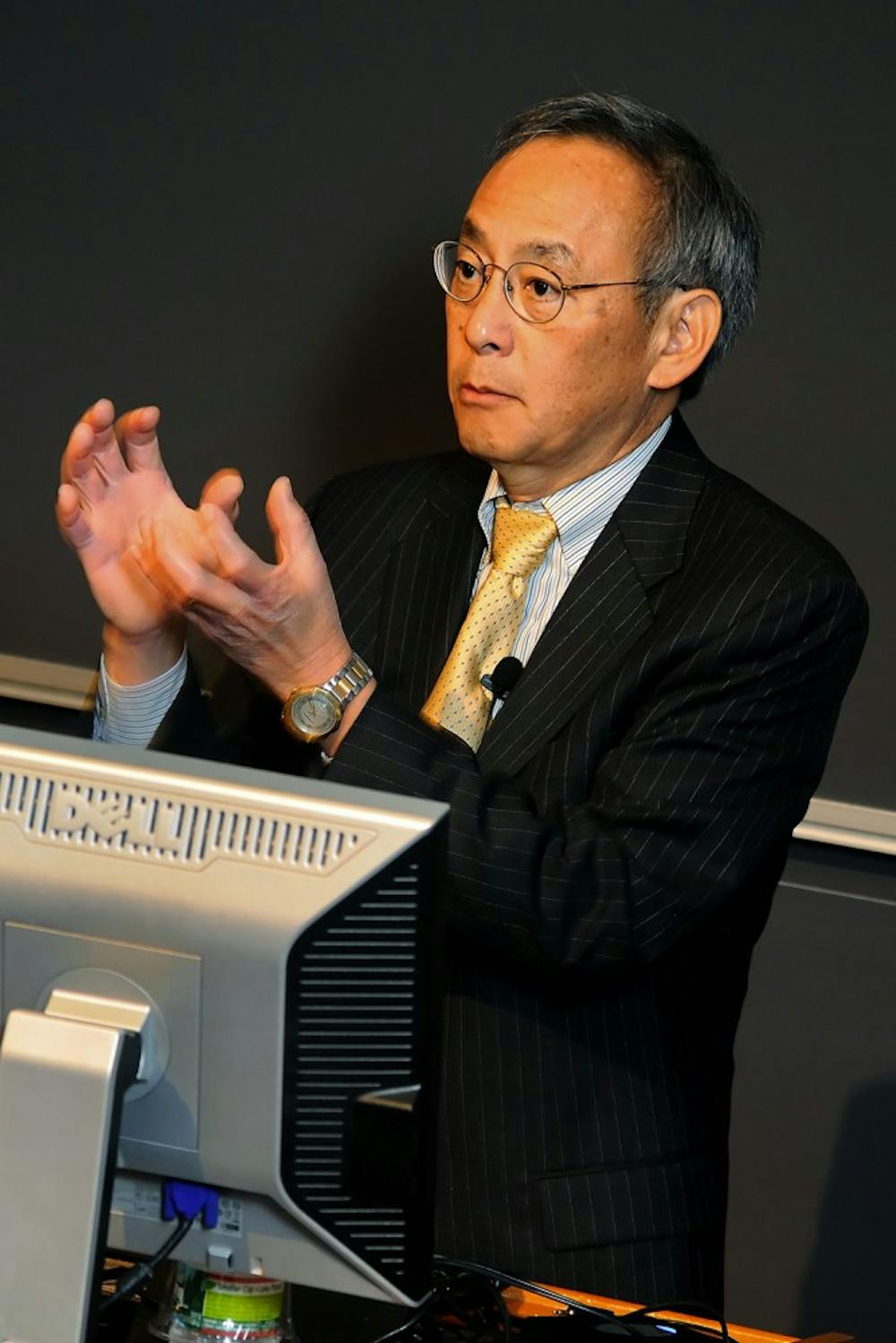
After being rejected from Penn and attending the University of Rochester, the United States Secretary of Energy Steven Chu has since won a Nobel Prize, obtained 15 honorary degrees from different universities and has secured ownership of 10 patents.
In a visit to Penn on Thursday, Chu first listened to eight graduate Engineering groups present their projects surrounding alternate energy sources. These included topics such as power generation from solid fuels, thin film solar cells and catalytic energy conversion. Groups that had worked on their projects for as long as six years had to boil down their research to under two minutes. Chu listened intently and then asked questions regarding the application of these ideas in the real world.
Chu then spoke to a packed Wu and Chen Auditorium, stressing the importance of “innovation from technology” and its ability to “change the world.” He broke his speech down into talking about agriculture, electronics and transportation, and their effect on the United States and the entire planet. This all, he said, contributes every single day to an increasing population worldwide. He emphasized the idea of overpopulation throughout his lecture.
“The more educated women are, the fewer babies they have. The wealthier people are, the fewer babies they have,” he said.
Q&A: ‘DP’ sits down with U.S. Secretary of Energy Stephen Chu
Wharton and Engineering sophomore Rohun Bansal was one of dozens of students who watched the speech on a projector in a separate room, as the auditorium had already filled up an hour prior to the event. Even so, Bansal was surprised at how comprehensive the presentation was. “I learned a lot about the role of innovation in the modern progress of mankind and glimses of where the world is heading in terms of energy.”
Engineering senior Sriram Radhakrishnan liked the “good progression in the speech. I especially found interesting the electronics part because I’m an electrical engineer.”
College freshman Daniel Yellin, however, wasn’t as enthusiastic. He felt like the speech was “a history lesson at first” but “became more interesting by the end.” Because Chu addressed many of today’s energy-related problems, Sylvia Qu, a graduate student in the School of Veterinary Medicine, found the talk “disappointing” because “he did not address solving the actual problems in depth.”
Nonetheless, Engineering sophomore Kevin Fritz found the event applicable to his studies and research.
“I’m studying material science and I work in a lab that does research on solar cells, so this was all very relevant to me,” he said.
The Daily Pennsylvanian is an independent, student-run newspaper. Please consider making a donation to support the coverage that shapes the University. Your generosity ensures a future of strong journalism at Penn.
DonatePlease note All comments are eligible for publication in The Daily Pennsylvanian.








